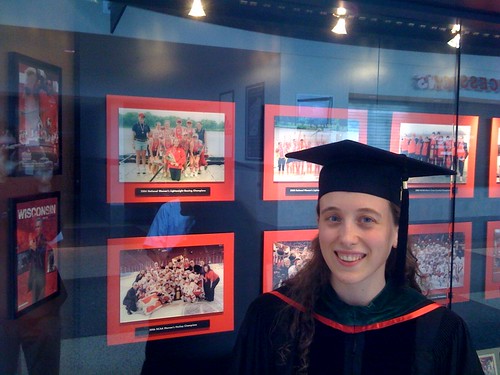I was recently listening to a song by Psapp called “The Monster Song,” which got me thinking about monsters. They’re a fascinating concept. They inhabit dark alleys, the cold forest, and claustrophobia-inducing caves — all the unknown places, the places we don’t want to go. But we need them, don’t we?
As the song was playing, I began pondering what the monsters represent. Some of them, I think, are about loneliness/isolation. We humans are herd animals, and it’s terrifying to imagine the predator pouncing from behind the trees and singling us out from the group, tearing us from our family and friends.
Some are about basic survival needs. We value our shelter; the monsters, on the other hand, thrive in the cold, damp darkness. That’s why it’s so easy to imagine them lurking outside our windows at night or hiding beneath the stairs in the basement. Surely, there’s some instinct at work there. Bacteria also thrive in damp, dark places. Perhaps our impulse to avoid such places really is smarter than we know.
Other monsters represent those parts of ourselves we fear. I’m not prone to depressed states, but even I have had moments in my life when some part of me despaired without reason. It’s truly frightening to know that our own minds and emotions can turn against us, that we can be seized by such moments of inexplicable sorrow.
But I’m an optimist. So even though I can relate to depression (which is what I think “The Monster Song” is really about), I’m also struck by the fact that it’s so easy to turn monsters into cute, comic characters as well.
Perhaps we should have some sympathy for the poor beasts, who give us reason to enjoy those times spent with family and friends gathered round the campfire.
Maybe Martin the Snot Monster is only trying to make us appreciate our health.

And maybe Ack-Ack the Rabbit of Loneliness — he’s immortal and can’t reproduce so all his friends and family have long since passed away — maybe he just wants us to call our mothers more often.

Surely Eric the Glum Cyclops exists at least in part to illuminate our blessings for us. Namely, that we have two eyes.

And what about Beaumont the Basement Lurker? He’s the one who used to laugh at us when as children we turned out the lights in the basement and then got the willies and ran up the stairs as fast as we could. But that was funny. So can we really blame him?

It could be worse. And in order to know that it could be worse, we must see the worst. Not that any of these thoughts are all that ground-breaking. But I could see a story emerging some day from the deep dark depths.
Until then, here’s the Psapp song and lyrics:
[audio: http://www.wiscostorm.net/home/audio/05%20The%20Monster%20Song.mp3]
Look out the door
That’s what it’s for
And tell me what do you see?
I do believe
That through the trees
There’s something hiding from me
The window’s wide
It climbs inside
But I don’t hear it creeping
I know its plan
Because it can
It gets me while I’m sleeping
Oh, and it’s happening again
It is laughing in the rain
When it gets me I will
Never be the same
Come out the dark
And join the march
And we’ll taste victory, I know
And through the crowds
And bustling sounds
There’s something waiting for me
It wears disguise
A faint surprise
Though I can see its yellow eyes
Oh, I can hear it as it comes
And it wants to taste my blood
We’re already lost, my love
We’ll never be the same
An open gate will close at eight
I’ll bolt the door and pace the floor
I still believe
Behind the leaves
There’s something waiting for me
A rising fear
Tells me it’s near
And I’m about to be consumed
The monster looms
And soon I know I will be
Dead and gone
Oh, and it’s happening again
And I do not like this pain
Now it’s got me,
I will never be the same
You know I like to go
For familiar feelings
And when they show
They only grow
I can’t hide their meanings
You know I like to go
For familiar feelings
And when they show
They only grow
I can’t hide their meanings
P.S. I created none of the artwork for the above monsters; I just gave them different personalities. They’re all “mojis.” But since that website isn’t all that fun to navigate, I linked most of the pictures to Mohd Ishak (aka eshark)’s page. He created all but the rabbit.





